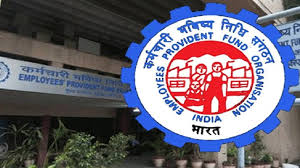At present, there is no specific framework available for technology or digital platforms to provide execution-only services in direct plans of Mutual Fund (MF) schemes and obtain data feeds with respect to such transactions.
Markets regulator Securities and Exchanges Board of India (SEBI) on Friday proposed a separate framework for platforms providing execution-only services in direct plans offered by mutual funds.
Assets Management Companies (AMCs) provide a separate plan for direct investments which are not routed through a distributor.
Read More: Rakesh Jhunjhunwala Portfolio: This Banking Stock Rises 23% in One Month; Should you Invest?
At present, there is no specific framework available for technology or digital platforms to provide execution-only services in direct plans of Mutual Fund (MF) schemes and obtain data feeds with respect to such transactions.
“To promote the penetration of MFs and to ensure that ease of investment comes with adequate investor protection and grievance redressal mechanism, a framework for working of these platforms may be the stepping stone towards strengthening the investors with the power of technology along with the ability to invest directly in MF schemes,” Sebi said in a consultation paper.
Under the proposal, an entity desirous of providing execution-only services in direct plans of mutual funds may be mandated to act as a registered intermediary, as an entity registered with industry body Association of Mutual Funds in India (AMFI) or as an entity with limited purpose membership with stock exchanges.
Execution-Only Providers (EOPs) may provide both financial services such as purchase and redemption of mutual fund units, and non-financial services like change of email id and contact number.
Such body corporate may or may not carry out other activities. If it is carrying out other activities as well, EOPs may be required to maintain an arm’s length relationship between their activities as EOPs and the other activities.
Read More: Sai Silks IPO: Ethnic apparel retailer files draft papers with Sebi; eyes up to Rs 1,200 crore
Since EOPs mainly operate through digital or technological platforms, additional requirements related to cyber security and other relevant parameters for EOPs would need to be prescribed under the rules by AMFI or stock exchanges, as per the consultation paper.
With regard to eligibility, Sebi has proposed that EOPs are required to have adequate infrastructure to provide financial and non-financial services.
“The minimum net worth should be prescribed in such a manner that it is not prohibitively high to deter small serious players or be anti-competitive,” the regulator said in the consultation paper.
EOPs may be mandated to ensure client level segregation with respect to their activities as EOP, IA/SB/PM and MFD activities.
The Securities and Exchange Board of India (Sebi) has sought comments from the public on the consultation paper till August 12.
MF industry has seen tremendous growth in the past decade and currently, the industry has Asset Under Management (AUM) worth Rs 38 lakh crore.
As on April 30, 2022, AUM routed through direct plans of MF schemes stood at Rs 16.94 lakh crore, which is 45 per cent of the total AUM.
Presently, there are various channels available to investors for investment in direct plans of mutual fund schemes. These include website or mobile app of the AMC, in physical or digital mode and through registered Stock Broker (SB)/Investment Adviser (IA)/Portfolio Manager(PM) in digital mode using mutual fund transaction platform provided by stock exchanges — NMF platform and BSE StAR MF.
In addition, investors can apply through Sebi registered IA or PM directly with AMCs as their clients through platforms like MF Utilities India and MF Central.
Sebi observed that various registered investment advisers and stock brokers have been providing execution services in direct plans of MF schemes through their technology platforms.
However, not all investors who are executing transactions in direct plans of MF schemes through these platforms are availing of any advisory or broking services. They are rather using the platform only to execute transactions in direct plans of MF schemes.
With respect to such investors, IAs/SBs typically use their respective registration codes to have the visibility of data feeds of clients’ transactions executed through their platforms.
AMFI had clarified that a SB/non-individual IA/PM can have visibility of clients’ direct plan transaction data feeds from RTAs for clients availing advisory, broking, portfolio management services by using the IA/SB/PM codes.
RTAs are Registrars to an Issue and Share Transfer Agents.
He usage of IA/SB/PM registration code by platforms for visibility of the transactions brings convenience for investors by providing an overall overview of their investments.
However, for the investors who are not their clients in terms of IA/SB/PM rules, the risk associated with such transactions cannot be overlooked as the non-clients do not have any recourse or protection available under any regulatory framework. Thus, there is a need to strike balance between the convenience and investor protection, Sebi said.





































